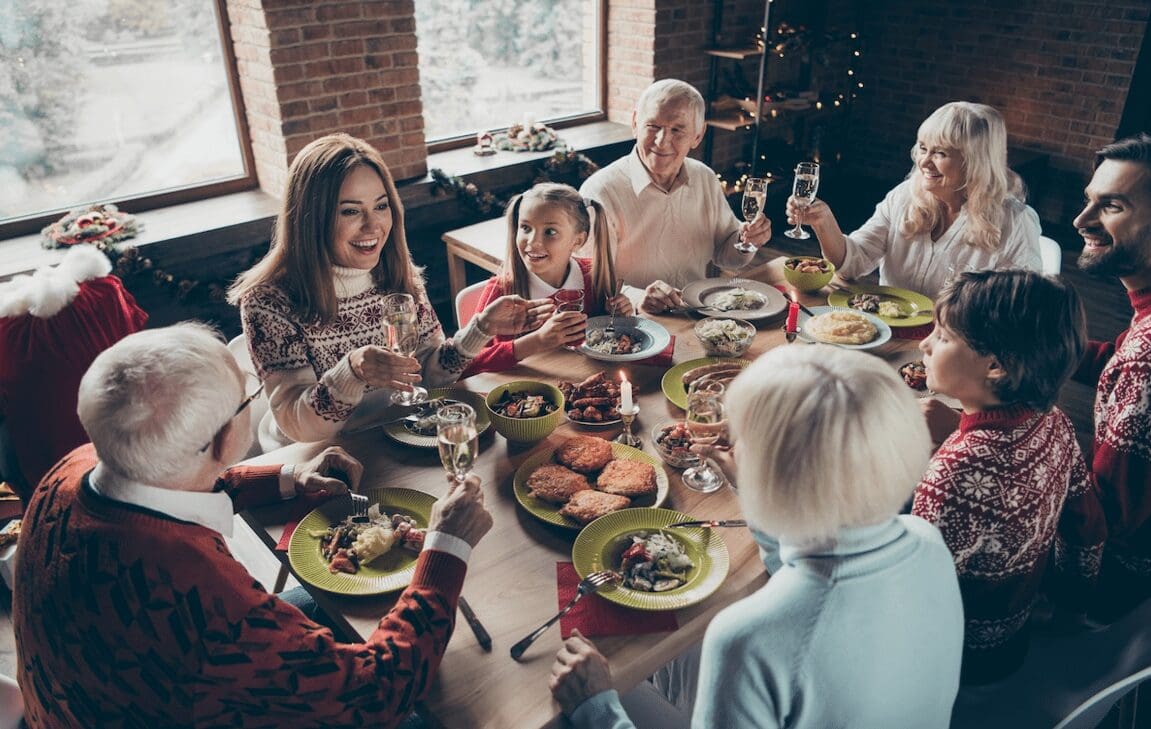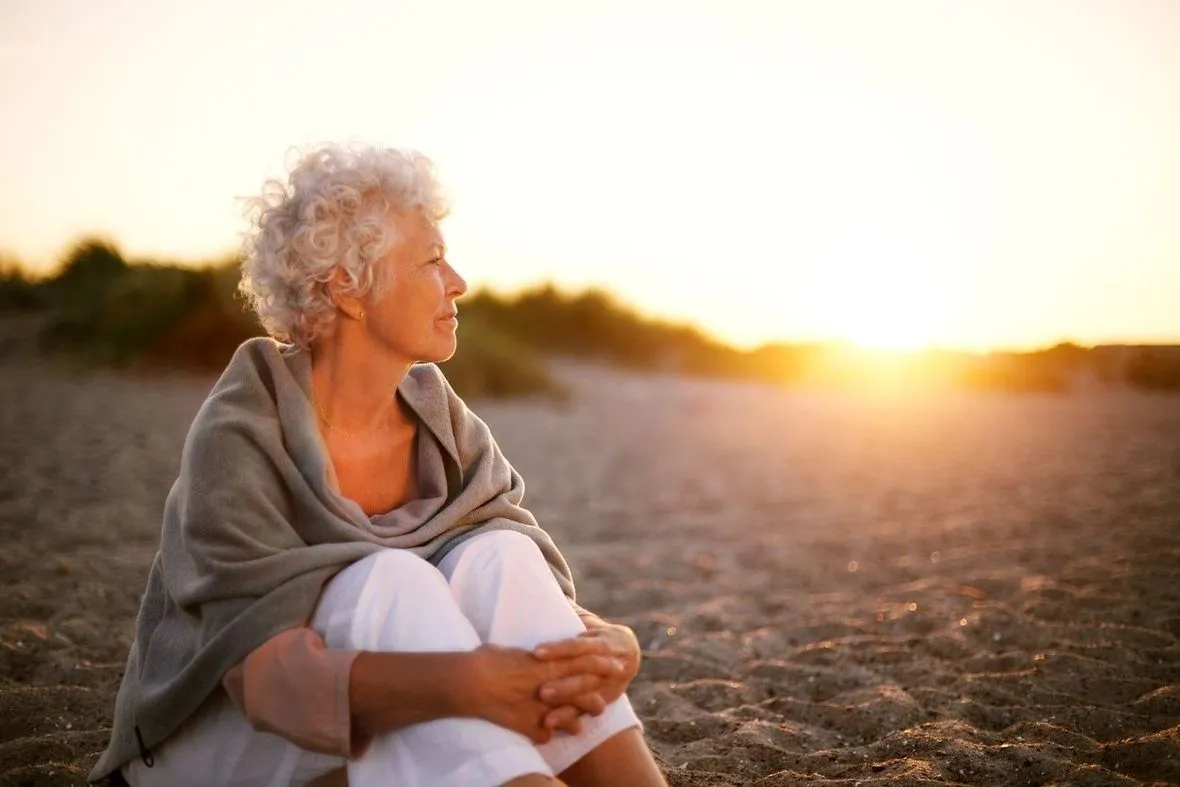Creating an Enduring Legacy: Leaving Positive Mark on the World
December 3rd, 2024Caregiver Employment, Companion Caregiver, Companion Senior Care, Uncategorized,
Building a legacy is a fulfilling accomplishment for seniors. It takes on additional significance as they strive to leave behind a lasting impact on their loved ones, community, and the world. In this article, we will explore 20 ways a senior can build a legacy, ensuring their mark will endure for generations to come.
Document Personal History:
Documenting personal history is a meaningful way to preserve our unique life experiences for future generations. By writing a memoir or recording personal stories, we create a rich tapestry of memories that can be cherished and learned from for years to come.
To start documenting your personal history, begin by setting aside dedicated time to reflect on your life. Consider significant events, anecdotes, and moments that shaped you as an individual. Jot down these memories, capturing as many details as possible. Recalling specific conversations, emotions, and sensory experiences will add depth and authenticity to your narrative.
Next, organize your memories into a logical structure. You can choose to write a chronological account of your life, focusing on each period separately, or organize them thematically, exploring specific aspects of your life in different chapters.
As you begin writing, be vulnerable and honest. Share your triumphs, challenges, and the valuable lessons you’ve learned along the way. This authenticity will help your readers connect with your story and understand the human experience on a deeper level.
Remember to incorporate vivid descriptions to bring your memories to life. Engage the senses, paint mental images, and provide contextual details to transport your readers back in time.
To add depth and perspective, consider including the important relationships in your life. Reflect on how these connections influenced your journey and shaped you into the person you are today. Sharing anecdotes about your loved ones will not only honor their place in your life but also provide future generations with a glimpse into the dynamics of their ancestors.
Alternatively, if writing isn’t your preferred medium, consider recording your personal stories using audio or video. Encourage loved ones to participate in the conversation, asking about their memories and perspectives. This collaborative approach will result in a more comprehensive and nuanced account of your personal history.
Mentorship Programs:
Mentorship programs offer a valuable opportunity for individuals to share their knowledge and wisdom with younger generations. By participating in these programs, mentors can make a profound impact on the lives of their mentees, passing on the lessons they have learned over a lifetime.
To become an effective mentor, start by identifying your areas of expertise and passion. Consider the skills and experiences you have gained throughout your life that could benefit others. Once you have a clear understanding of what you have to offer, seek out mentorship programs that align with your interests and values.
Establishing a strong foundation of trust and open communication is crucial in any mentorship relationship. Take the time to get to know your mentee on a personal level, understanding their goals, aspirations, and challenges. Actively listen to their concerns and provide a non-judgmental space for them to share their thoughts.
As a mentor, it is essential to create a supportive and nurturing environment for your mentee. Offer guidance, encouragement, and constructive feedback to help them navigate their personal and professional paths. Share your own experiences, both successes and failures, to help them gain perspective and learn from your journey.
While it is essential to offer guidance and support, remember that mentorship is a two-way street. Encourage your mentee to actively participate in their own personal and professional growth. Help them set goals, hold them accountable, and provide resources or connections that can aid them on their journey.
Lastly, be patient and understanding. Building relationships and personal growth take time. Be available and committed to the mentorship process, offering ongoing support as needed.

Preparing for the Holidays with Your Elderly Loved One
November 13th, 2024Companion Caregiver, Companion Senior Care, Elderly Care, In Home Care, Polish Care Services, Preparing for the Holiday,
The holiday season, with its joy and festivities, provides a perfect opportunity to cherish time with family, especially our elderly loved ones. However, for seniors, especially those requiring care, this time can also bring challenges. Here’s a comprehensive guide on how to prepare for the holidays, ensuring they are enjoyable and stress-free for everyone involved, focusing on the essential roles of companion caregivers and the broader scope of elderly care.
Understanding the Needs of Elderly During the Holidays
Health Considerations:
– Medical Needs: Before diving into holiday planning, review your loved one’s health with their healthcare provider. Ensure any necessary adjustments to medication or diet are made to fit the holiday schedule.
– Mobility: Consider how holiday festivities might impact mobility. If your loved one uses mobility aids, ensure they are in good condition.
Emotional and Social Needs:
– Isolation: Holidays can be particularly isolating for seniors. Plans should include ways to engage them socially.
– Memory Issues: For those with cognitive impairments like dementia, routine is key. Introduce holiday changes gradually.
The Role of Companion Caregivers
Companionship:
– Engagement: Companion caregivers can play a pivotal role in keeping seniors engaged. Activities could range from crafting holiday decorations to watching classic holiday movies together.
– Outings: If feasible, outings to see holiday lights or community events can be delightful, with caregivers ensuring safety and comfort.
Support in Daily Activities:
– Meal Preparation: Holiday meals might require different preparations. Caregivers can assist in cooking or adapting recipes to meet dietary needs without losing the festive spirit.
– Personal Care: Ensuring that personal care routines continue amidst holiday busyness is crucial for maintaining health and comfort.
Planning and Execution
Early Start:
– Shopping: Begin shopping early to avoid the last-minute rush, which can be overwhelming for seniors. Online shopping with caregivers can be a fun activity or a necessary convenience.
– Decorations: Involve your loved one in decorating to the extent they can. This not only makes them feel included but can also stimulate memory and cognitive functions.
Safety First:
– Home Environment: Ensure the home is safe for holiday activities. Secure decorations, manage cords to prevent tripping, and consider the placement of the Christmas tree or menorah to avoid fire hazards.
– Emergency Plan: Have an emergency plan in place. Know where the nearest hospital is, have emergency numbers accessible, and ensure caregivers are briefed on any specific health concerns.
Celebrating Together
Adapting Traditions:
– Simplifying: Sometimes, traditional celebrations might need scaling down. Focus on what truly matters; for instance, a small, intimate gathering might be more comforting than a large party.
– Inclusion: If your loved one can’t participate in every event, find ways to include them, like video calls during family gatherings.
Special Activities:
– Memory Sharing: Encourage storytelling sessions where seniors can share past holiday memories. This not only entertains but also preserves family history.
– Crafts and Cooking: Involve them in holiday crafts or simple cooking tasks they can manage, promoting a sense of contribution and creativity.
Caregiver Support
Respite for Family Caregivers:
– Professional Help: Consider hiring professional care during peak holiday activities to give family caregivers a much-needed break.
– Self-Care: Remind family caregivers to look after their own well-being, ensuring they also enjoy the holidays.
Training and Preparation:
– Handling Emergencies: Ensure caregivers are trained in first aid and know how to manage holiday-specific emergencies like food poisoning or falls.
– Cultural Sensitivity: If your traditions involve specific cultural practices, ensure caregivers are sensitive to these, enhancing the experience for everyone.
Technology in Elderly Care
Digital Engagement:
– Virtual Gatherings: Use technology to connect with family members who can’t visit in person. Caregivers can assist in setting up video calls or teaching seniors how to use these tools.
– Health Monitoring: Utilize health apps or devices to keep track of vitals or medication schedules, which can be particularly helpful during the chaotic holiday season.
Post-Holiday Care
Recovery and Reflection:
– Rest: After the festivities, ensure there’s ample time for rest. The excitement can be exhausting for the elderly.
– Review: Reflect on what worked well during the holidays and what could be improved for future celebrations, keeping notes for next year.
Conclusion
Preparing for the holidays with an elderly loved one involves a delicate balance of celebration, care, and safety. By leveraging the support of companion caregivers, embracing senior care practices, and adapting to the unique needs of elderly care, you can create a holiday season that is not only memorable but also nurturing. This time of year can become a cherished period where love, care, and tradition intermingle, providing warmth and joy to all, especially those who might need a little extra attention during the festive times. Remember, the goal isn’t just to celebrate, but to do so in a way that honors and includes our elderly loved ones in every possible way. Polish Care Services provide non-medical assistance to seniors and disabled to enjoy quality of life, please contact us for more information.

Companion Senior Care: Nurturing Holistic Well-being
February 14th, 2024Caregiver Service, Companion Senior Care, Senior Care Services, Seniors,

Caring for Seniors: Preventing the Spread of COVID-19 During Cold
September 28th, 2020aging in place, Caregiver Service, Companion Caregiver, Companion Senior Care, Dementia Care, Disability Care, Elderly Care, Fall Activities for Seniors, Long Term Care, Meditation, Senior Living, Senior Services, Seniors, Spring Activities,
COVID-19 is here to stay for the foreseeable future, until there is an effective and safe vaccine. As the pandemic considers, it’s time to start thinking about how to keep seniors safe during long term care as we head into the colder months. Here is what to keep in mind when it comes to preventing the spread of COVID-19.
Covering Your Bases: Basic COVID-19 Spread Prevention
It is best to reinforce what is already known, wear a mask over your nose and mouth at all times when outside the house and encourage everyone you live with to do the same. Keep one in your car or bag if you accidentally leave it behind. Wash your hands frequently with soap and water for at least 20 seconds. Keep six feet of distance between yourself and others when outside the home. Avoid large gatherings with friends, and groups and observe social distancing and mask-wearing precautions if you do. Do not touch your face and monitor your health daily by going through the common symptoms. Stay home if you feel ill.
What to Do in the Fall
Flu shots are available starting in September. Experts recommend getting one starting in October so that it lasts for the entire season. Arrange for your elderly loved one to get one as well. Some medical providers or services may come to the house to give one for a fee if your loved one or client doesn’t already have home health care nurses seeing them.
How to Care For Clients or Loved Ones at Home During the Colder Months
Preventing the spread of COVID-19 during fall, winter, and spring relies upon following many of the same basic precautions for in home senior care. Both the care provider and the elderly person should be wearing masks while the care provider is in close proximity. Minimize indoor conversation and stay six feet away from any other family members or pets in the house. Minimize conversations indoors and clean surfaces touched as you go. If possible, increase ventilation indoors without making the room too cold. Encourage others in the home to clean surfaces after you leave as well.
If you have supplies such as gloves, masks, or hand sanitizer, keep the supplies in a sealed container in the home to use only when you’re there.
Finding a trusted care provider to help your loved one is a challenge. Polish Care Services will answer the call. Reach out to us to learn how our caregivers help the elderly receive quality in-home care.

Caring for Seniors: Caring for Seniors During Changing Seasons
September 7th, 2020aging in place, Alzheimer's Care, Caregiver Service, Companion Caregiver, Companion Senior Care, Home Care, In Home Care, Preparing for the Holiday, Retirement Plans for Seniors, Senior Care Services, Senior Living, Senior Services, Seniors, Summer Activities for Seniors, Uncategorized,
As we head into another time of the year, start thinking about long term care for seniors at home during each season. Every time of the year has unique challenges for the elderly population. Keep reading to learn how to care for seniors during season change such as autumn, winter, spring, and summer.
Care During Autumn
Autumn is the season to prepare in-home care clients for the winter ahead. The flu season officially begins in October. So start asking your client’s family or nurse to arrange for a flu vaccine in September or early October. Go through the client’s over-the-counter medicines and get rid of any cold-related medication or supplies that have expired. Replace the expired supplies and stock up on other things like tissues, cough drops, and nose spray if applicable.
Fill the pantry with cans of healthy soups and find recipes for warm dishes that can be put in the crockpot for easy meals. Fix any drafty spots in the house.
Don’t forget to go through existing cold weather clothes and replace anything that’s no longer wearable. Make sure the client has enough socks, sweaters, warm pajamas, and blankets to keep them cozy.
Care During Winter
Winter is the coldest time of year and can present the most risk to seniors at home with increased fall risks and household risks. One of the most important steps to take is to prepare the home for winter. Caregivers should notify the client or their family of any potential hazards around the home such as a lack of fire extinguishers around the fireplace, stairs that present a fall hazard when wet, or carbon monoxide detectors in need of batteries.
Make up an emergency kit with a flashlight, warm blankets, a radio, backup batteries, water, and nonperishable food to last for several days in case in-home visits cannot be made. Install non-slip mats under rugs and in any room where the client may slip and fall. Keep shoes on mats inside the house to keep puddles from forming on the floor if they’re wet. Finally, keep areas well-lighted as it gets dark to prevent clients from falling over objects.
Care During Spring
Spring is a season of fresh starts and is a time for caregivers providing in-home senior care to reassess things in the home. Examples of this include making sure that the medication list for the client is current and has all prescribed medications as well as vitamins or supplements. Any expired or discontinued medications should put in a separate location until a family member or client’s home care nurse can look at them or disposed of if possible.
Evaluate the rooms used by the client for any repairs or improvements to be made. Consider installing grab bars and non-slip mats in the bathroom, putting appliances and dishes within easy reach in the kitchen, and installing a nightlight in the bedroom. Move clothes and grooming items within reach for the client to use and make sure they can reach the phone or medic-alert devices from the bed.
Lastly, secure cords out of the way and get rid of clutter in the home that presents an ambulation hazard.
Care During Summer
When the weather begins to heat up, seniors face new challenges. Heat can put added stress and pressure on the elderly. It’s best to keep them cool and indoors. Avoid any strenuous activities. If the client wants to do a physical activity like take a walk, it’s best to do it early in the morning while it’s still cool. Keep them hydrated throughout the day with water and avoid drinks with alcohol or caffeine in it. Encourage wearing light layers and keep the home cool by running a fan or using solar curtains.
Prepare meals that are light and healthy like salads and avoid heavy meals. Stock up on popsicles or other frozen items that help keep clients hydrated and cool. Offer a cool shower or bath to help beat the heat and use a cool washcloth on the back of the neck when sitting to help alleviate feeling hot.
If the client wants to go out, go to places with air conditioning like a library, coffee shop, or mall.
Every season has its care benefits and care challenges. The most important thing to remember is to prepare in advance. The more prepared a caregiver is for each season, the less stressful it will be for the senior. If you’re looking for a thoughtful and prepared caregiver, contact Polish Care Services. Our staff will be happy to match our caregivers to your loved ones.

Caring for Seniors: Providing Care for Seniors During COVID-19
August 25th, 2020Caregiver Employment, Caregiver Service, Companion Caregiver, Companion Senior Care, Homecare, House Cleaning, In Home Care, in home care assistance, Long Term Care, Office Cleaning,
COVID-19 is not going away any time soon. There are measures that caregivers can and should
take to protect themselves and the people they care for. This article discusses how these measures
protect everyone involved and keeps those in need of care from contracting COVID-19.
Understanding COVID-19 Spread
COVID-19 spreads between people in proximity to one another, less than six-feet apart via
respiratory droplets. When one person coughs, sneezes, or talks to another, the droplets produced
from that will land in the other person’s mouth and nose. The virus can spread from someone who
is infected but not showing symptoms.
How to Stay Safe
Hand washing is one of the main ways to help keep caregivers and those who need care safe. It
should be done frequently, especially after:
– Using the bathroom.
– Caring for someone who is sick.
– Leaving a public place.
– Blowing your nose.
– Changing a diaper.
– Touching your face, eyes, or mouth.
Use hand sanitizer with at least 60% alcohol if soap and water aren’t available.
Maintaining distance from others is another way to stay safe. Stay away from people who are sick
in your household. If you provide long term care at a facility or at a person’s home, limit
unnecessary close contact as much as possible.
Wear a mask when you are outside the house. A mask protects others from getting sick. This
includes while you are working with your care client. Gloves are also recommended when working
closely with someone else.
Keep disposable supplies like masks, gloves, hand sanitizer and other things specific to your care
client in a container at their home or at your facility for your use only.
Clean Frequently
Clean and disinfect surfaces frequently while you are working. This is also a good practice to
implement at home.
Stay Healthy
Be aware of the basic symptoms of COVID-19. These include fever, cough, and shortness of
breath. If you think you have any of these, take your temperature. Don’t take it right after
exercising or taking medication. Consider keeping a symptom diary to track any time you are
feeling unwell during the pandemic.
If you experience any of these symptoms or others, let your client know and plan for alternative
care, and get a COVID-19 test if symptoms are not going away.
Caregivers at Polish Care Services are committed to keeping clients safe during COVID-19.
Moreover, one caregiver to one patient in an in home care setting helps to minimize the risk of spread.
Contact us at 860-255-8278 to learn more about how we provide safe in home senior care.

Caring for Seniors: Managing Finances
July 28th, 2020Caregiver Employment, Caregiver job, Caregiver Service, Companion Caregiver, Companion Senior Care, Disability Care, Hire CNA, In Home Care, in home care assistance, Long Term Care, Outdoor Activities for Seniors, Polish Care Services, Senior Living, Senior Services, Seniors, Spring Activities,
Caring for Seniors: Managing Finances
Care is an expensive part of getting older. Everyone will need some type of long term care in their senior years. This knowledge does not make planning for these financial eventualities any easier. Long-term care insurance is one option that helps with the cost of care as people age. This article provides an overview of what this insurance option is and what it covers.
What is Long-Term Care Insurance?
Long-term care insurance covers services that help seniors as they get older. It helps with the cost of having assistance for activities of daily living or ADLs such as bathing, dressing, and transferring. Traditional health insurance doesn’t cover such costs. This insurance can cover:
– In-Home Care
– Home Health Aides
– Care at an Assisted Living Facility
– Care in a Nursing Home
Long-term care insurance is an option that some seniors choose because they may not want to use a loan, property sale, or to depend on family to help out if care is needed.
The Benefits of Long-Term Care Insurance
Long-term care insurance can help pay for in-home senior care and seniors can stay at home longer. The insurance will typically begin covering services when assistance is needed with two or more ADLs. Because it covers in-home care, a senior can have caregivers come into their home and help them with ADLs along with things like cooking and cleaning.
The costs of moving to assisted living or to a nursing home has a monthly rate starting at $6,000 on average excluding the cost of medical care. If you are a senior in need of care, the cost is typically less expensive to stay at home with care.
What to Keep in Mind About Long-Term Care Insurance
The best time to buy long-term care insurance is between the ages of 50 and 65. Waiting longer may mean an increase in cost, especially for those with an existing condition. Insurance premiums are not cheap but for those who can’t afford care out-of-pocket and are not considered low-income, long-term care insurance is something to think carefully about.
If you’re in need of in-home senior care, reach out to the staff of Polish Care Services 860-255-8278 or care@polishcareservices.com. We can help walk you and your family through the options for in-home senior care.
